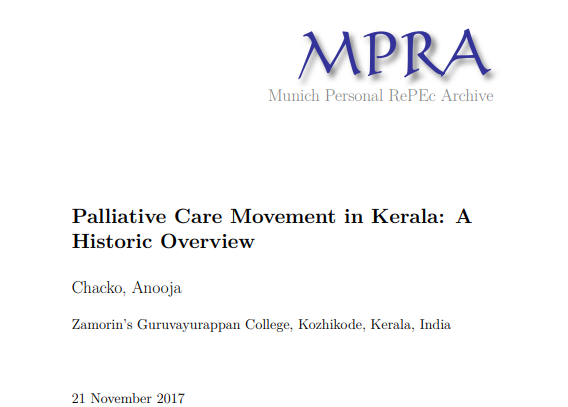Strangers at the Bedside: Subaltern Solidarities and New Form Institutionalization
This study explores the dynamics of subaltern solidarity-making in the institutionalization of a community-driven palliative care model in Kerala, India. Focusing on the collaborative efforts between diverse actors, including subaltern and dominant groups, the research investigates the creation of the Neighborhood Network in Palliative Care (NNPC). Central to this narrative is Dr. Abdul Rahman, a physician in Manjeri, Malappuram district, who played a pivotal role in establishing satellite centers for palliative care. Beginning with weekly consultations by the Kozhikode team, these efforts culminated in the development of an integrated, decentralized care model. The Manjeri initiative exemplified mutual recognition and collective action, reconfiguring spatial relations to embed care within communities. By 2008, these grassroots efforts influenced the Kerala government to introduce Asia’s first palliative care policy, highlighting the transformative potential of solidarity across social hierarchies. This work contributes to understanding subaltern participation in addressing complex social problems and offers a framework for similar initiatives globally.




Comments
Post a Comment